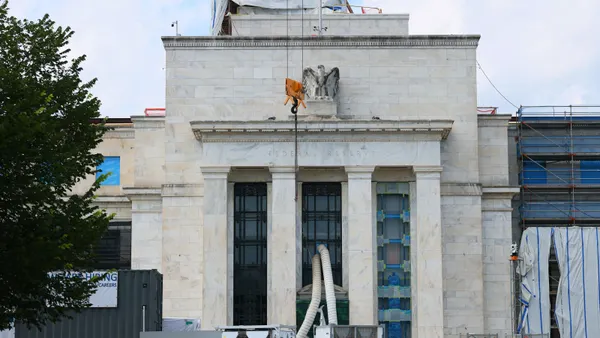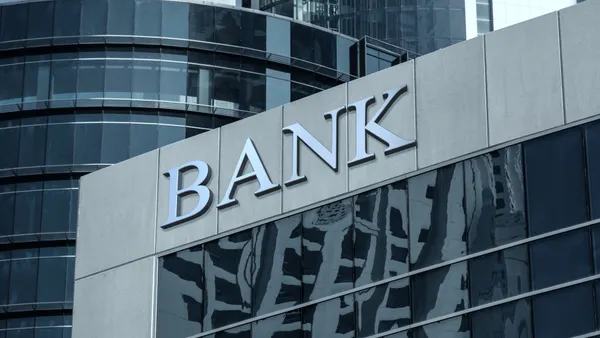The Office of the Comptroller of the Currency will take “politicized” debanking into consideration when it reviews licensing filings and evaluating banks’ Community Reinvestment Act ratings.
The agency said Monday it would review “on a case by case basis, a bank’s record of and policies and procedures designed to avoid engaging in politicized or unlawful debanking consistent with the applicable evaluative factors.”
The agency also will consider “whether a bank has engaged in politicized or unlawful debanking … on a case by case basis, in determining the bank’s CRA rating.”
Politicized debanking has been a hot topic of late, particularly since President Donald Trump returned to office in January. At a virtual appearance at the World Economic Forum in Davos, Switzerland days, after his inauguration, Trump levied accusations against Bank of America CEO Brian Moynihan that his bank had debanked conservatives. Moynihan responded by blaming over-regulation.
Last month, Trump issued an executive order directing federal regulators to remove guidance that enables “politicized or unlawful” debanking. But it was already on the agenda for Comptroller of the Currency Jonathan Gould, who had pledged during his nomination hearing in March to “shine a spotlight” on debanking and to focus on “depoliticizing the banking system.”
“The OCC is taking steps to end the weaponization of the financial system,” Gould said in a prepared statement Monday. “We are working to root out bank activities that unlawfully debank or discriminate against customers on the basis of political or religious beliefs, or lawful business activities. If and when the OCC identifies such activity, it will take action to end it.”
The OCC said it requested information from its nine largest regulated institutions to evaluate their debanking history. It also updated its online consumer complaint portal, and is reviewing complaint data, as well as information from government and third-party sources, it said.
“Individuals may have been targeted and surveilled based on where they shop or what they believe in and, in some cases, unlawfully debanked,” Gould said. “The OCC will not tolerate the misuse of customer financial records as a political tool. The OCC intends to work with other government agencies to ensure this conduct is identified and addressed.”
Prior to Trump’s return to office, the debanking discourse was largely focused on the cryptocurrency industry, which alleged a coordinated effort by the Biden administration to debank crypto industry personnel and also to dissuade banks from working with crypto firms. Redacted letters from the Federal Deposit Insurance Corp. published in December show that the agency called for a “pause” on bank-crypto activity in 2022, appearing to support a long-held industry assumption that federal regulators acted to keep traditional financial institutions out of the nascent and often volatile industry.
But a House of Representatives committee report published in March 2024 found that several banks coordinated with the FBI and Financial Crimes Enforcement Network to surveil and share banking activity of conservatives following the Jan. 6, 2021, riot at the U.S. Capitol.
Calling back to that report, the OCC published a memo Monday “remind[ing banks] of their legal obligations to protect their customers' financial information, even if that information is requested by government agencies.”
Banks must comply with the 1978 Right to Financial Privacy Act, which prohibits financial institutions from giving the government access to customer financial records except in limited circumstances, the OCC said.












